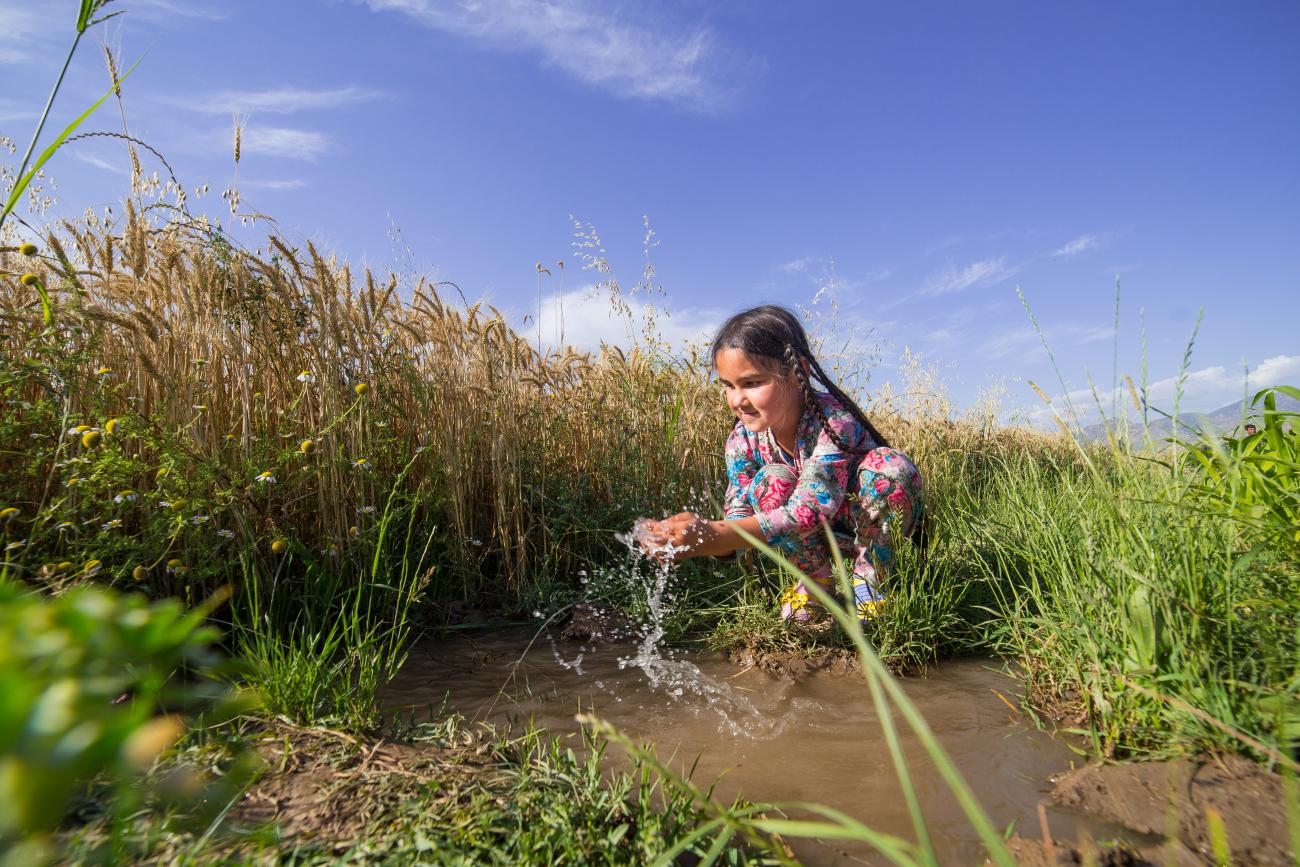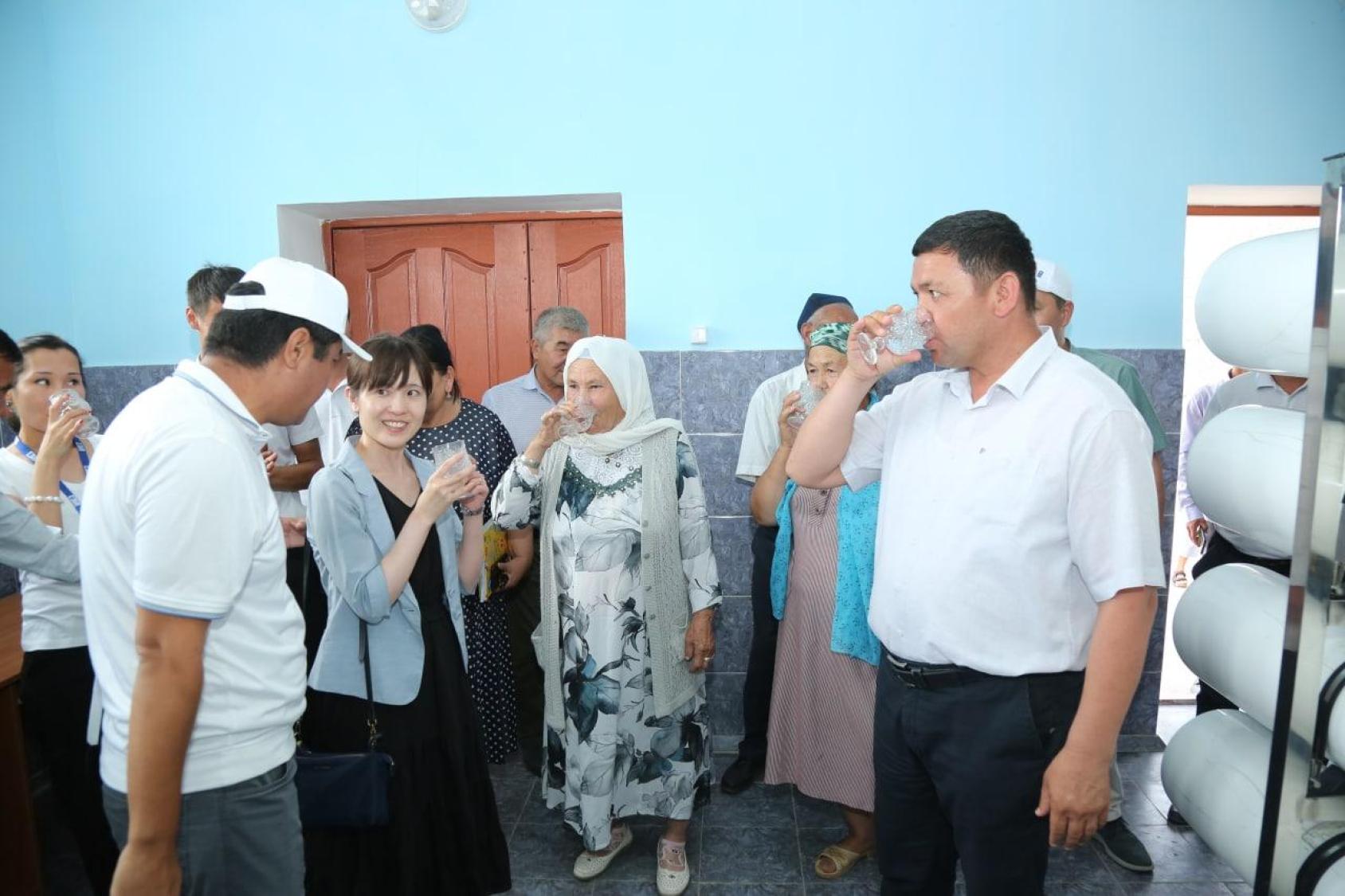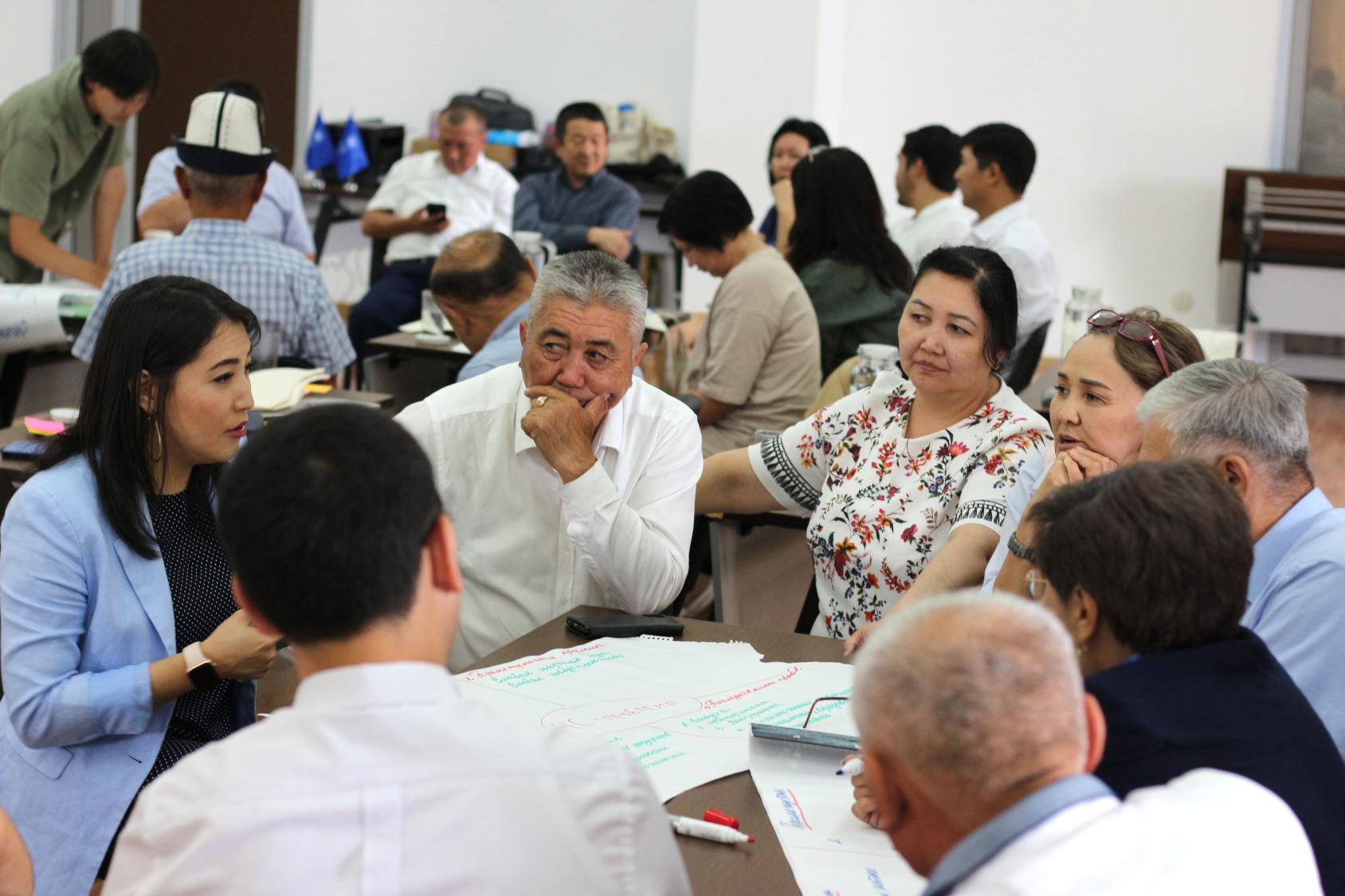UN teams in Central Asia leading the way in sustainable water action

Water is a powerful tool for cooperation and an essential resource for sustainable development.
This week as thousands of changemakers from around the world come together to discuss new ways of managing water to help tackle some of humanity’s greatest problems during the 2022 World Water Week, we explore the work of UN teams in Central Asia to advance progress towards SDG 6: clean water and sanitation for all.
Since the launch of agenda 2030, the UN Teams in the region have been working with host governments to help build resilient communities and make lasting progress towards SDG 6. From the healthcare sector to agriculture to education, UN agencies across Central Asia have taken a number of concrete steps to improve access to clean water and strengthen the region's water security.
Tajikistan: Joint action of the UN and Government improves access to water and sanitation
In Tajikistan, the need to expand access to water, sanitation, and hygiene services (WASH) as well as to improve overall water management is at the center of the development agenda. This topic was also the focus of attention of key national and global actors this summer.
Earlier in June, the Government of Tajikistan in partnership with the United Nations (UN) hosted the Second International High-Level Conference on the International Decade for Action “Water for Sustainable Development” in Dushanbe, Tajikistan. This high-level event that attracted senior government officials and experts from all around the globe identified measures to promote sustainable water management through greater resilience to climate shocks and water shortages.
Water insecurity is a significant challenge across Central Asia and is particularly acute in rural areas. Although the overall situation has improved in the past decade, there are still significant gaps as many people do not have access to safe drinking water and sanitation facilities.
Besides drinking, water supply is also critical for public health priority to prevent disease and the spread of infections including COVID-19. Results from a 2018 survey of healthcare facilities in Tajikistan by the Ministry of Health showed significant gaps in the provision of WASH services and the need for better environmental and sanitation practices.
The WASH-FIT initiative is one of the key initiatives, co-managed by WHO and UNICEF, designed to tackle these very challenges, and to help governments around the world deliver more sustainable WASH services and integrate them into national health policies.
With the support of WHO, the authorities in Tajikistan began a pilot of the WASH-FIT programme in several health facilities across the country. Along with guidelines, WHO provided several national training courses on improving WASH services across a range of health care settings.
The provision of water, sanitation and hygiene are now key targets in Tajikistan’s National Health Strategy for 2030, demonstrating the growing importance of WASH services in the country.
UN has a strong partnership with Tajikistan through the promotion of important multilateral priorities related to climate change, water, and glacier preservation. More than 750,000 people in the country have already benefitted from improved access to water, sanitation, and hygiene in 2021 thanks to the joint UN and Government initiatives.
Uzbekistan: Providing access to safe drinking water in rural areas
In Uzbekistan, UN teams are also scaling up efforts to address water security and drive progress towards SDG 6.
At the beginning of August, within the framework of a joint programme with UNFPA and FAO, UNDP launched a project to provide safe drinking water in the rural areas of the Khorezm region. The project, which was funded by the Coca-Cola Foundation aims to create more sources of safe drinking water to help reduce waterborne diseases and improve public sanitation and hygiene.

Earlier this summer UNFPA and UNDP launched another joint project to expand access to safe drinking water for residents of Karauzyak, a district in northwest Uzbekistan. The new water purification equipment along with the 11 km long water supply line provided over 1100 residents in “Madeniyat" and "Korymli" communities with clean drinking water, freeing them from the need to go to neighboring communities for water.
Alongside the new supply line, another water purification station was officially launched in the Ageden community of the neighboring Bozatau district.
Kyrgyzstan: Integrating climate risk into national water policy
Like other countries in Central Asia, Kyrgyzstan is experiencing the notable effects of climate change, from weather extremes and temperature fluctuations, to land degradation and increased drought intensity. As the region continues to warm faster than the global average, water scarcity has become a growing challenge with knock-on effects on food, energy, agriculture, and environmental systems. The higher temperatures in Kyrgyzstan and across the region is already leading to earlier snowmelt; driving water demand higher and increasing overall water stresses.

This summer UN teams in Kyrgyzstan have been working with partners to strengthen water security and build greater resilience to the effects of climate change. In July, UNDP organized a training session in the Issyk-Kul region in the east of Kyrgyzstan, bringing together representatives of key national and local departments in the field of water resources and climate risk management.
“The main focus of the project is the integration of climate risks into decision-making processes and development strategies at the national and regional levels,” said Gulzhan Makhmudova, project сoordinator, UNDP Kyrgyzstan. “It is important to note that similar events will be held in Uzbekistan and Tajikistan, after which one consolidated regional event will be organized.”
This piece was compiled from UN country teams' inputs by the UN Development Coordination Office (DCO). To learn more about our work in this area and beyond, please read the latest UNSDG Chair Report on DCO.
To learn more about the World Water Week event, please visit www.worldwaterweek.org





































